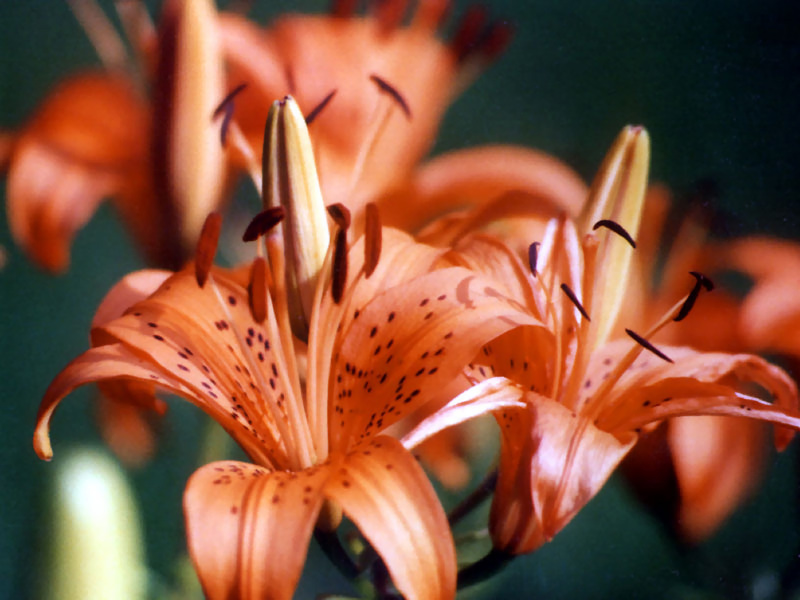Your Guide to Winter-Proofing Your Precious Garden Plants
Posted on 21/06/2025

Your Guide to Winter-Proofing Your Precious Garden Plants
When temperatures dip and winter arrives in full force, gardeners everywhere start worrying about their beloved plants. Precious garden plants often require special protection to thrive through frosty nights and cold winds. In this comprehensive guide, we'll explore effective strategies to winterize your garden, ensuring that your favorite flowers, shrubs, and perennials not only survive, but come back stronger in spring!
Table of Contents
- Why Winter-Proofing Matters
- Knowing Your Hardiness Zone
- Preparing the Soil and Garden Beds
- Best Methods to Protect Plants
- Bringing Sensitive Plants Indoors
- Watering and Care During Winter
- Common Winter Garden Mistakes to Avoid
- Preparing for Spring Revival
- Frequently Asked Questions
Why Winter-Proofing Your Precious Garden Plants Matters
Winter can be brutally harsh on outdoor plants. Frost, snow, ice, and fluctuating temperatures can damage leaves, roots, and stems, especially for delicate or non-native plants. Winter-proofing helps in:
- Preventing frost damage: Most garden plants are sensitive to sudden temperature drops.
- Maintaining soil health: Protecting the soil helps to retain nutrients and structure.
- Ensuring plant survival: Proper winter protection increases your plants' chances of re-emerging in spring.
- Reducing plant stress: Stress-free plants are more resistant to diseases and pests.
Taking measures to winter-proof your garden can make all the difference when it comes to maintaining a healthy, beautiful landscape year after year.
Knowing Your Hardiness Zone: The First Step to Winter Plant Protection
Before winterizing your garden, it's essential to understand your local climate. The USDA Hardiness Zone Map classifies regions based on minimum temperatures, offering guidance on which plants will naturally thrive in your area and which will need extra protection.
How to Find Your Hardiness Zone
- Visit the USDA Plant Hardiness Zone Map.
- Enter your zip code to determine your region.
- Check plant labels for their recommended zones before planting.
If you live in a colder zone, pay extra attention to protecting sensitive, precious garden plants during winter.
Preparing the Soil and Garden Beds for the Cold
An often overlooked but vital winterizing step is proper soil preparation. Healthy soil supports robust root systems and helps plants withstand cold stress.
Comprehensive Steps to Prepare Your Garden Beds
- Clean up spent plants: Remove annuals and cut back perennials to discourage pests and diseases from overwintering.
- Compost Garden Debris: Only compost healthy plant material. Dispose of anything diseased.
- Add organic matter: Apply a layer of compost, well-rotted manure, or leaf mold. This fortifies soil and boosts microbial activity.
- Loosen compacted soil: Use a garden fork to gently aerate and improve drainage.
- Mulch generously: A thick mulch layer (2-4 inches) protects roots, moderates soil temperature, and reduces water loss.
Tip: For extra precious plants, consider double mulching or using straw for added insulation.
Best Methods to Protect Your Garden Plants from Winter
There are several effective methods to shield your favorite garden plants from winter's chill.
Top Winter Plant Protection Techniques
-
Mulching:
- Use bark chips, pine needles, straw, or shredded leaves.
- Apply after the first hard frost to minimize pest activity.
- Keep mulch a few inches away from stems to prevent rot.
-
Frost Coverings:
- Install burlap, horticultural fleece, or frost blankets over vulnerable plants.
- Secure coverings at night and remove during the day if weather allows.
-
Cold Frames and Cloches:
- Use portable cold frames or glass cloches for small and delicate plants.
- Ensure proper ventilation on sunny days to prevent overheating.
-
Wind Barriers:
- Set up burlap screens or plant windbreaks to shield tender plants from drying winter winds.
-
Winter Watering:
- Water well before the ground freezes so roots are hydrated.
- Avoid overwatering which can lead to root rot in wet soils.
-
Antidesiccant Sprays:
- Use on evergreens to reduce winter moisture loss.
Be extra attentive with newly planted specimens--they are especially vulnerable their first winter.
Bringing Sensitive and Tropical Plants Indoors
Not all garden plants are equipped to handle snow and ice. Tender perennials, houseplants, and tropical species should be moved indoors before the first frost.
Step-By-Step Guide to Indoor Winterization
- Inspect for pests and diseases: Remove any infested leaves or treat with mild insecticidal soap.
- Clean containers and soil: Wash pots and repot if necessary, replacing old or compacted soil.
- Choose a bright, cool spot: Most overwintering plants prefer indirect light and cooler indoors temperatures (50-60?F or 10-15?C).
- Reduce watering: Plants grow slower in winter and can suffer from root rot if overwatered.
- Monitor humidity: Use a pebble tray or humidifier to prevent leaf edges from browning in dry, heated homes.
Special note: Some bulbs and tubers (dahlias, cannas, begonias) should be dug up and stored in a cool, dry location.
Watering and General Care for Winter Garden Plants
Understanding how to care for winter-proofed plants is just as important as protecting them from the cold. Here's how to keep your precious garden plants healthy:
- Check moisture: During warm spells, inspect your beds. Water if the ground is dry, especially evergreen plants.
- Avoid heavy pruning: Prune only if necessary, as cuts can make plants more susceptible to cold.
- Remove snow buildup: Gently brush snow off branches to prevent breakage, but avoid breaking frozen, brittle limbs.
- Monitor for pests and disease: Even in winter, be vigilant for signs of trouble, especially indoors.
Remember: Well-cared-for plants are better equipped to weather winter's stress and bounce back in spring.
Common Winter Garden Mistakes to Avoid
- Applying mulch too early: This can attract pests and cause rotting before the soil freezes.
- Overwatering during dormancy: Most plants need less water when not actively growing.
- Failing to protect young or non-native species: These are most at risk from winter injury.
- Forgetting to check on plants periodically: Especially after storms, periodic inspections are essential.
- Ignoring local weather: Sudden thaws and freezes can wreak havoc--be prepared to adjust plant protection as needed.
Avoid these common pitfalls to keep your precious garden in the best possible shape all year round.
Preparing Your Garden for a Springtime Revival
As temperatures begin to rise, it's time to help your winterized garden plants make a healthy transition back into active growth.
Spring Recovery Tips
- Remove mulch gradually: Pull mulch away as the ground thaws to allow new shoots to emerge.
- Inspect plants for winter damage: Prune away dead or damaged wood carefully.
- Resume regular feeding: Apply a balanced fertilizer once growth starts up again.
- Refresh soil if needed: Top-dress garden beds with compost or organic matter.
- Re-pot and move indoor plants outside gradually: Acclimate them to outdoor conditions by setting them out for a few hours a day before the last frost date.
With the right care, your precious garden will come alive more beautiful than ever!
Frequently Asked Questions on Winterizing Garden Plants
1. When should I start winterizing my garden?
Begin preparations before the first hard frost. This typically means starting in late autumn, but timing depends on your region.
2. Can I use regular plastic to cover my plants?
Avoid plastic, as it traps condensation and may freeze your plants. Use breathable fabrics such as burlap or horticultural fleece for best results.
3. Is winterizing necessary for native plants?
Native species are often well-adapted to local climates, but young or newly transplanted natives can benefit from extra protection their first winter.
4. Should I prune perennials in fall or spring?
Leave perennial stems up for winter interest and insect habitats. Cut back in spring when new growth appears, unless disease is present.
5. How do I store bulbs and tubers over winter?
Dig after foliage dies back. Dry them, remove soil, and store in a cool, dark, frost-free spot in peat moss, sawdust, or vermiculite.

The Takeaway: Safeguard Your Precious Garden Plants This Winter
Winter can be challenging for even the most experienced gardeners, but with the right techniques, your prized plants can survive--and thrive--season after season. Winter-proofing your garden doesn't have to be complicated. With a little planning and care, you'll enjoy a beautiful, healthy landscape when spring returns.
Start your winterizing routine today--your precious garden plants will thank you with vibrant blooms and lush growth next year!


